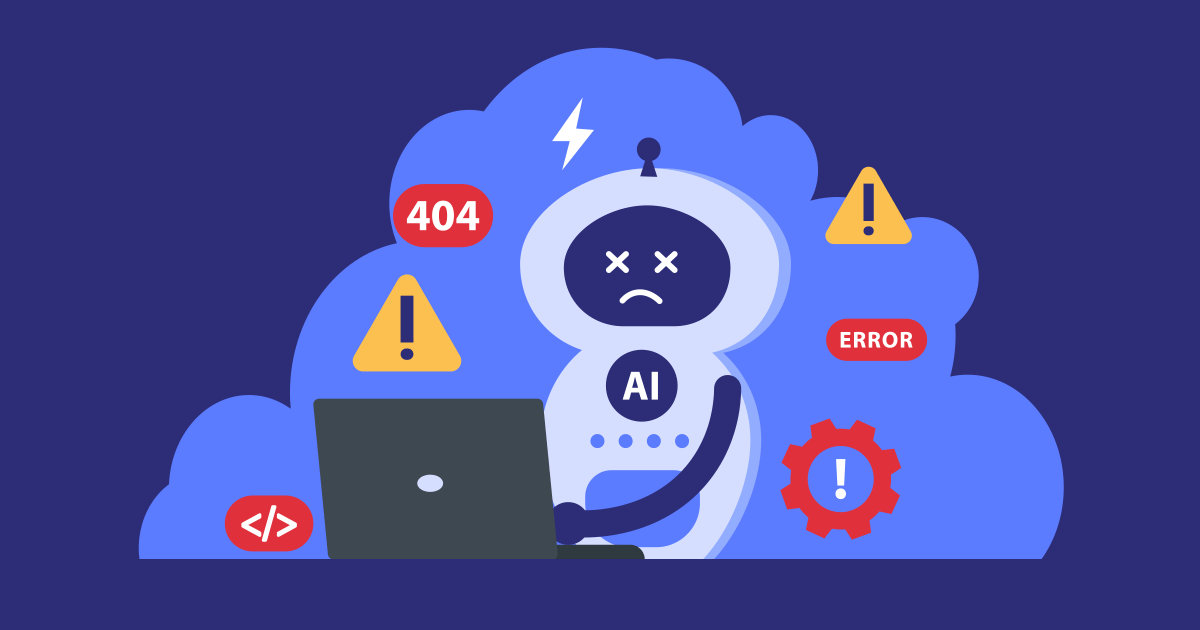Insights and Technology
Our story, vision and perspectives on technology, design and business solutions.
Featured Articles
Artificial intelligence (AI) promises a lot, but it's true potential often remains untapped.
Why? Well, not because technology lacks maturity, but because we forget that real-world use by people remains the real driving force behind any digital transformation.
And yes, no one understands humans better than humans.
This is where the “human-first” approach comes in, a simple philosophy that places people at the heart of technological changes, and thus designing tools and systems that genuinely work for the individuals who use them.
The goal isn’t to strengthen the technology itself. It’s to strengthen our understanding of the work your teams do before adding a layer of artificial intelligence on top of it. You can have the most advanced systems in the world, but if your teams aren’t ready, nothing will move forward.
At Spiria, we see it every day. Successful organizations don’t just modernize their infrastructure. They modernize how their teams interact with their tools, their data, and their workflows. They lay the groundwork for AI to become useful, understandable, and sustainable.
This article explores how human-centred software modernization naturally prepares organizations to welcome AI that integrates itself smoothly, supports people, and enhances their work for long-term AI success.
Modernizing for AI starts with modernizing for humans
Modernizing first, then wondering how to drive AI adoption internally.
How many organizations have made this mistake?
The desire to integrate AI is natural. It represents progress, innovation, and efficiency. But in reality, it often struggles to fit into environments that were never designed to support how teams actually interact with them.
The result? These systems that seem modern on paper remain underused. The teams using them are frustrated, and bypass these new tools to return to old habits. It’s a disappointing ROI that leads leadership to question AI itself.
In our previous article, “Why Legacy Systems Break Under AI Pressure”, we explored the technical obstacles of fragmented data, rigid architectures, and technical debt. But these technical obstacles are only part of the problem. The other part, the one we overlook far too often, lies in human and organizational silos.
That’s why a people-centered approach is essential. Modernization must be guided, not only by technical requirements, but by the people who depend on these systems every day. It’s about clarifying, simplifying, and streamlining the experience, so tools become coherent, easy to use, and aligned with day-to-day work.
AI only creates value when it enters an environment teams already understand. Modernizing for AI therefore means modernizing for humans first.
The three foundations of human-readiness: clarity, trust, collaboration
Before diving any further, let's remember one key thing, “human-first” is the approach, while “human-ready” is the outcome. In other words, an organization reaches this state when modernization is intentionally designed for people and put into practice.
These pillars are the foundation for this:
1. Clarity
Clarity translates to making systems readable, workflows understandable, and tools intuitive.
It is about operational transparency, not technical transparency. What data does AI use? Why does it recommend one action over another? What are its limits?
Teams need to understand what a system does, how it does it, and why it does it.
Clarity reduces uncertainty and opens the door to natural, confident use of AI.
It helps users know when to trust the algorithm and when their own judgment should take the lead.
2. Trust
Trust is the invisible core of any technological adoption.
It grows gradually, but it starts with evidence.
Building trust in AI requires reliable systems, consistent results, and tangible improvements in day-to-day work. People need to see that AI simplifies their work rather than complicates it, and that it respects operational realities instead of ignoring them.
Ongoing training is crucial. Not only at the beginning of a project, but over time, giving teams the space to explore, ask questions, and build technological intuition.
When trust settles in, AI becomes genuinely useful.
3. Collaboration
Collaboration is what brings everything else to life.
AI projects rarely fail because of algorithms. They failed because people weren’t involved early enough.
Preparing teams to collaborate with AI means understanding their real pain points, their critical decisions, and their operational constraints. This knowledge is what allows AI to find its appropriate role in the workflow.
AI can optimize a process, but only humans can understand nuance, context, and intent. This complementarity is where its true value lies.
From AI-ready to human-ready: two concepts often confused
Many organizations aim to become “AI-ready" with upgraded infrastructure, centralized data, and new intelligent tools. But none of these matter if people aren’t ready to use them.
Being “human-ready” is different. It is the outcome of a “human-first” approach. It means having simple systems, clarified processes, and tools that match real-world usage. It means creating an environment where teams understand the technology, trust it, and can apply it with discernment. And this people preparation must come first.
Too many organizations treat modernization as an isolated IT initiative. They invest millions in new infrastructures without ever questioning user experience. But what is the point of a high-performance system if no one wants to use it?
Organizations that succeed with AI don’t just deploy new tools. They prepare their teams to integrate them into daily practices, even before the first deployment.
They adjust processes early. They clarify roles and responsibilities before AI arrives. They build trust during the design phase, and do not wait for the first setbacks.
They invest in sustainable organizational transformation, where humans remain at the centre of decision-making from day one.
What if the key to AI success was simply people?
“Human-first” modernization isn’t a trend.
It’s a working philosophy based on a simple truth: long-term performance is built on strong human foundations, not solely on advanced algorithms.
Modernizing means creating systems that are clearer, more reliable, and more people-centered, systems capable of evolving at the pace of the people and organizations they support.
At Spiria, this belief guides our approach to modernization and AI integration projects. We enable organizations to build custom solutions that empower people, so AI can truly deliver on its promises.
Because the foundation of AI success lies in an approach that makes artificial intelligence useful, sustainable, and deeply human.
What if the best way to succeed with AI was simply to put people back at the heart of modernization?
Today, Artificial Intelligence (AI) dominates every strategic and business growth conversation. So far, this is probably old news to you.
But once we move past theory, the reality is quite different. While budgets allocated to AI projects are exploding, many organizations encounter a major obstacle they hadn’t fully anticipated: their legacy systems are slowing down their digital transformation.
Does this reflect the reality of your company?
Here, the real obstacle isn’t even AI’s complexity. It’s the growing gaps in your systems. They were never designed for today’s standards and lack three crucial elements: clean and reliable data, flexible integration capabilities, and computing power.
Recognizing these limitations makes it clear why application modernization has shifted from a technical decision to strategic one.
1. Clean Data: AI’s Fuel
Would your data be ready to feed AI today? If your immediate thought was anything close to “yes, absolutely” ... well, this tab would (probably) be closed already.
AI’s efficiency relies entirely on its access to clean, structured, and consistently formatted data. To generate reliable analyses, machine learning algorithms require absolute accuracy in their data sources. Even slight data quality issues can quickly degrade the performance of the entire intelligent system.
However, for legacy systems, the information stored is messy and inconsistent. It is kept in incompatible formats, and lacks the governance required to ensure long-term data integrity. The result? Your data lives in silos, often in contradictory formats, which is exactly the opposite of what AI needs.
These analytical deficiencies create a massive roadblock for organizations looking to leverage their data as a true strategic asset.
Sounds familiar? Well, it clearly indicates that your existing infrastructure is limiting your ability to stay competitive.
The consequences are immediate: while you struggle with inconsistent information, competitors are already harnessing predictive analytics and intelligent automation. This gap in data maturity rapidly translates into a competitive disadvantage.
Data architecture modernization eliminates these quality issues by providing automated governance systems, real-time validation pipelines, and consistent structuring that transform your information into resources immediately usable by AI.
2. Flexible Integrations: The Unified Ecosystem
How much time do you spend on custom integrations? If you have to think about it, it’s already too much.
AI requires a complete, unified view of data. Legacy systems create the opposite environment where each custom connection adds complexity and new points of failure.
Most organizations run multiple infrastructures that were never designed to communicate efficiently together, creating significant integration hurdles.
Let’s take a concrete example: customer’s information often lives separately across marketing, sales, and support systems. Each speaks its own language. Before data can even be fed to AI, it must be transformed, cleaned, and harmonized. This complexity restricts AI initiatives to limited and isolated use cases.
The solution? An API-first architecture.
Modern application architectures address these challenges with a design focused on Application Programming Interfaces (APIs). Instead of forcing complex integrations between incompatible systems, APIs provide standardized connectivity. This enables smooth data sharing and consistent AI integration across the entire technology ecosystem.
3. Elastic Resources: Infrastructure That Adapts
How many times have your systems buckled under unexpected spikes in activity? If the answer isn’t “never”, imagine what will happen when AI workloads are added to the mix.
This question often reveals the most critical limitation of legacy infrastructures: their lack of scalability. AI applications require massive resources in addition to flexible capacity to manage variable workloads.
Legacy systems quickly hit reach their limits. They were built for predictable, static loads, making them fundamentally unsuited for the dynamic computing demands of AI.
What happens when an organization tries to graft AI onto them? It’s common to see system crashes, degraded performance, and operational instability. Even worse, years of accumulated technical debt. This is the result of all the shortcuts, temporary fixes, and workarounds that gradually make the systems harder and more expensive to maintain. These are all symptoms of a fundamental mismatch in architecture.
This burden prevents organizations from investing in innovation and modernization, creating a vicious cycle where legacy systems slowly become obsolete. Without the required scalability, businesses miss out on essential advancements in machine learning and intelligent automation.
The adoption of modern solutions solves these scalability challenges by enabling dynamic resource allocation, true agility through microservices, and compatibility with today’s AI technologies.
Preparing Your Organization for an AI-Driven Future
Ready to turn your constraints into advantages?
Your legacy systems don’t doom your AI ambition, but they demand a purposeful transformation. Those who recognize this and invest in Application Modernization will be positioned at the forefront of their industries, leveraging data-driven decision-making as a true competitive edge.
The key is approaching transformation strategically, letting AI requirements shape architectural decisions and implementation priorities. This means investing in frameworks that ensure data quality, API-first design, cloud-based scalable infrastructures, and modern development practices that enable continuous innovation.
The cost of modernization is significant, but the cost of staying stuck on legacy systems that steadily grow obsolete while competitors capitalize on AI advantages is often far greater. The calculation is simple: staying on existing systems is more expensive than modernizing.
Beyond AI, modernization delivers broader strategic benefits. Modern infrastructures allow businesses to respond faster to market opportunities, adopt new technologies quickly, and maintain a strong competitive position as requirements evolve.
Today’s investment becomes tomorrow’s competitive advantages, sustaining your organization’s market leadership in the long run.
All Articles
How many companies start their modernization project thinking: "I know exactly what I want, why pay for an analysis?"
If you've heard this in your organization (or if you've said it yourself), you're not alone. But it's a bit like telling an architect: "I need a house, just start digging tomorrow morning."
Obviously, we'd never build our dream home without detailed plans, soil studies, or permits. Yet that's exactly what we do with our business software systems, which are worth thousands of dollars. Funny logic, isn't it?
So, how do you move forward with clarity rather than blindly to ensure good strategic preparation? Two points make all the difference: defining your business objectives and understanding your end users.
Defining Your Business Objectives
"We already know what we want" Are you sure?
Often, what we think we want is only part of the answer, and this certainly can be costly...
Here are some common truths often underestimated in most modernization projects:
What's hiding under the hood of your systems
Your applications don't live in isolation. They exchange data through Applications Programming Interfaces (APIs) that no longer run smoothly, share databases that are sometimes disorganized, and rely on small fixes made by your teams that no one currently documents.
In this context, choosing to modify an element of your software without first mapping these interdependencies is like playing Jenga with your infrastructure. A thorough audit of your systems will reveal these hidden links and help anticipate ripple effects.
The real hidden costs of migration
The price of new technology is never just the license. Team training, data migration, integration testing, the ramp-up period... All these indirect costs can often represent a large portion of the total project budget. By identifying them from the start, we transform unpleasant surprises into controlled budget lines.
The real impact on your business processes
Changing systems often means changing how people work. Your teams have developed countless workarounds to bypass bugs, speed up processes, and create shortcuts to compensate for current limitations. Over time, these habits become invisible... until they stop working. Taking the time to understand the human impact makes all the difference in ensuring a successful transition.
When AI reveals everything we preferred to ignore
Added to all these challenges is artificial intelligence (AI), which can, in some cases, complicate the equation. Wanting to "just add AI" to a system that's poorly prepared will amplify all your existing issues. AI requires clean, structured, governed data, otherwise it will instantly reveal inconsistencies, duplicates, and obsolete formats. Without solid foundations, AI becomes a problem magnifier rather than a driver of efficiency.
How do you see more clearly?
The key? A structured approach that leads to project success.
Start by taking time to analyze your entire ecosystem: collaborative workshops with all stakeholders, not just IT. Then, map real data flows, audit hidden technical constraints, and most importantly, define real business objectives with measurable success indicators.
The result? You move from "we think that..." to "we know that...", with a roadmap that anticipates obstacles instead of discovering them along the way.
At Spiria, our teams of business analysts, developers, and designers don't just deliver a plan, they join you as technical partners to map your entire ecosystem, reveal invisible dependencies, and build a roadmap aligned with your business objectives.
Understanding Your End Users (UX/UI)
"Our teams will adapt" Is it that simple?
Big trap. Focusing everything on technology and budget while forgetting those who will actually be using the solution: your users. Their realities are quite different, as are their expectations.
A project that neglects this dimension runs a major risk: delivering a system that's robust on paper but unused in practice. And obviously, a tool that isn't adopted is a wasted investment.
The 4 pillars of user adoption:
1. Moving beyond assumptions
Too many projects start from what leaders think their teams do, rather than what they actually do. Big difference. Real behaviours, real frustrations, and real usage contexts only emerge through direct observation and in-depth interviews.
2. Designing the architecture the way your team thinks
Your users aren't looking to admire your interface, they want to accomplish their tasks efficiently. Organizing features according to their real objectives will transform navigation into a smooth journey. Indeed, what sets good information architecture apart is that it becomes invisible to the user, meaning that they find what they are looking for without having any effort.
3. Prototyping: Testing before building
Having real people test interactive prototypes reveals necessary adjustments before they become very expensive to correct. Whether it's a misplaced button, a process that's too long, or confusing terminology, the prototype will help avoid weeks of redevelopment.
4. AI serving the user, not the other way around
Even the most sophisticated artificial intelligence fails its mission if it doesn't match users' real habits and constraints. An approach centered on their workflow will ensure that AI amplifies efficiency rather than creating new frustrations.
How do you ensure adoption?
The key? By immersing yourself in field reality from the start, not at the end.
Understanding why your users take certain shortcuts, identifying their real challenges, observing the context in which they work (quiet office, noisy open-area office, constant travel). This detailed understanding guides each design choice toward real adoption rather than assumptions.
The result? A solution with better adoption rates that protects your investment rather than wasting it.
At Spiria, during our in-depth analysis phase (Discovery Phase), our UX/UI design teams dive into your field reality, conduct interviews with your various departments, observe real journeys, and transform pain points into measurable design criterias.
The Foundation of Lasting Success
Modernizing on fragile foundations is like building a house directly on the ground, without a concrete slab. It holds... until the first storm.
Companies that invest in serious preparation deliver faster and see their teams naturally adopt new tools.
In 2025, AI accelerates this logic. It amplifies what exists: solid foundations become a powerful lever, fragile foundations create complications. This reality makes preparation even more important.
Yes, preparing well requires more time and initial investment. But you need to consider the total cost: companies that prepare rigorously avoid data flow redesigns, successive corrections, and months of post-launch adjustments. The upfront investment pays off quickly when you don't have to rebuild everything six months later.
While your competitors are correcting their planification mistakes, you're already optimizing them. This head start is measured in quarters, and market shares. Preparation is what turns uncertainty into clarification. It’s the moment when strategic decisions take shape, risks become manageable, and every dollar invested supports long-term success.














